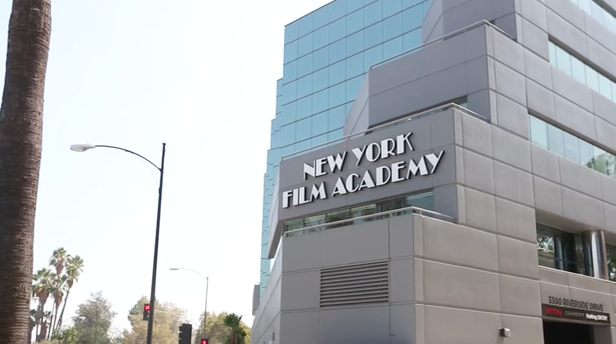Study Film Production and Theory at NYFA
In NYFA’s Master of Arts (MA) in Producing program, located at our Los Angeles campus, students learn key theoretical, creative, and aesthetics aspects of the entire producing process, such as how to identify or create viable media content, write a treatment, a budget and a business plan or TV show bible along with taking a closer look at key relationships and marketplace forces shaping the role of the producer. Throughout the program, students obtain the critical skills used in various entertainment fields including film festivals, events, film critique, and any curatorial environment alongside professionals and experts. The program is also a great fit for students who want to pursue a teaching path or enroll in PhD programs.
Faculty Highlights
Curriculum
The MA curriculum at NYFA’s Producing School in Los Angeles include:
- Coursework experience in classes such as Producer’s Craft: Budgeting, The Great Screenplays, Business Plans & TV Show Bibles, Media & Culture, and more
- Additional liberal arts and science courses in topics such as History of Art and Theatre and Media
- The opportunity to work with professional standards, enjoying collaborations in the fields of film and television production, development and preservation of the moving image art
- Instruction and feedback from experienced faculty and staff actively working in the film, television and scholarship fields
- Access to NYFA library with robust scholarly research opportunities
- Ability to attend guest lectures from top film industry professionals, experts, and more
To learn more about the MA program courses, refer to NYFA’s Los Angeles Course Catalog or request more information.
If you are a non-native English-speaking student who meets all admissions requirements for a NYFA degree program, except for English proficiency, apply to our International Pathway Program!
The MA degree is a specialized, one-year, two-semester degree that helps students hone their research and critical abilities while preparing for the challenges of the entertainment, media and creative industries.
Students in the MA in Producing program complete real-world projects such as a Marketing and Distribution Plan, Finance and Budgeting Plan, and TV Show Bible. The program culminates in students composing a well-researched thesis. To learn more about the projects that producing students may complete, visit NYFA’s producing project page.
In addition to their Producing courses, students take History and Theory classes that support the Producing curriculum. To learn more, visit NYFA’s History and Theory Courses page.
The MA is available at NYFA’s Producing School in Los Angeles.
3300 W Riverside Drive
Burbank, CA 91505
Master of Arts in Producing
| Location | Program Start Date and End Date | Tuition |
|---|---|---|
| Los Angeles | August, 2026 – August, 2027 | Fall 2026 Semester The program semesters tuition and duration is listed below. In addition to tuition please review the programs associated feesTuition:$20,500 Per Semester Departmental Program Fee:$2,000 Per Semester Program Duration: 3 Semesters |
*Additional Fees:
Spring 2026 – Summer 2027
| Technology Fee: | $80 Per Semester |
| Wellness Services & Programming Fee: | $145 Per Semester |
| Activity Fee: | $125 per semester |
| Orientation Fee: (Spring 2026: January 5th – January 9th) |
Domestic Students: $150 International Students: $200 |
| Graduation Fee: | $100 |
| International Student Fee: | $200 for the first semester, $120 each subsequent semester |
Please note: Equipment, curriculum, and projects are subject to change and may vary depending on location. Students should consult the most recently published campus catalog for the most up-to-date curriculum.

